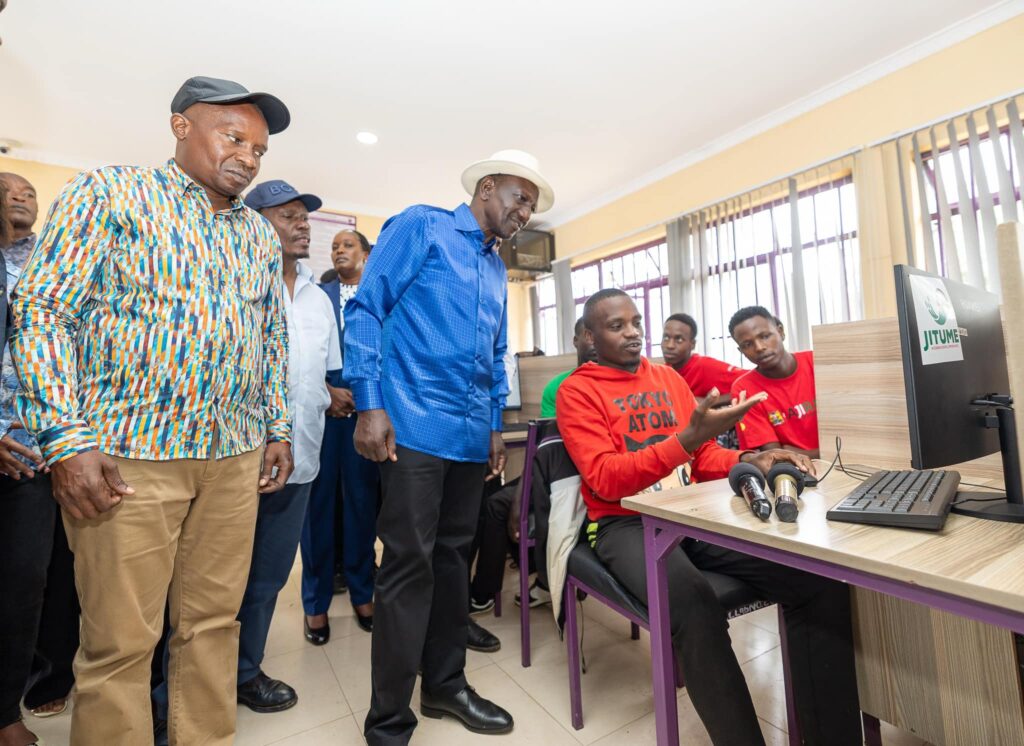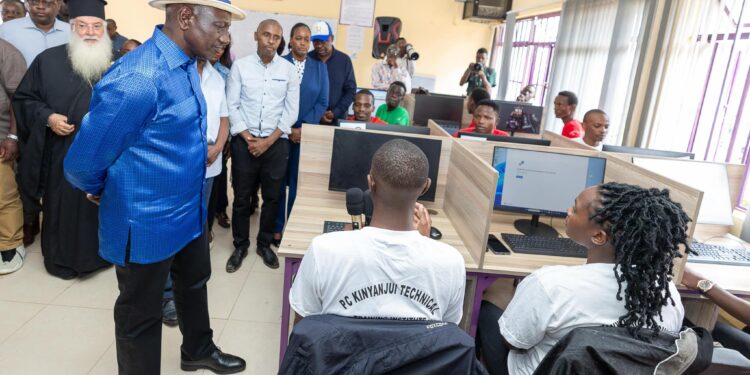Unemployment has been a persistent challenge in Kenya, particularly among the youth, posing a significant threat to economic stability and social cohesion. For decades, previous administrations have grappled with the ever-growing demand for jobs without implementing sustainable solutions. However, President William Ruto’s administration is taking decisive and structured steps to curb this crisis by introducing innovative programs and expanding economic opportunities. The government is making employment creation a priority through digital skills training, vocational education, and infrastructural development.
President Ruto has reiterated that his administration will spare no effort in ensuring that young people have access to employment opportunities. He firmly believes that empowering the youth with relevant skills, particularly in technology, will provide long-term solutions to the joblessness crisis. The government has, therefore, embarked on opening digital hubs across all wards in the country to equip young people with the necessary competencies to compete in the global digital economy. By embracing technology, Kenya is positioning itself to take advantage of online jobs, remote work opportunities, and digital entrepreneurship.
The digital hubs initiative is part of a broader government strategy to integrate technology into the workforce. According to the President, digitization will be a game-changer, enhancing job creation, economic inclusion, and financial independence among Kenyan youth. He stressed that the transition to a competency-based learning system is vital for equipping young people with practical knowledge that meets market demands. These hubs will also serve as incubation centers for innovation, providing youth with training and mentorship to thrive in an increasingly digital world.
Beyond digital empowerment, President Ruto’s government is revitalizing Technical and Vocational Education and Training (TVET) institutions. The modernization and expansion of TVETs are aimed at bridging the skills gap in Kenya’s labor market, ensuring that graduates are well-prepared for both formal employment and self-employment. The government has committed substantial funding to modernize these institutions, procure state-of-the-art equipment, and enhance partnerships with industries to ensure graduates are aligned with market needs.
Another key pillar in the government’s job creation agenda is the Affordable Housing Programme, which is already generating thousands of jobs. The housing initiative not only aims to provide decent housing for Kenyans but also to create employment opportunities in the construction sector. Thousands of young people, including masons, carpenters, plumbers, and electricians, are benefiting from these projects. The initiative is also providing small-scale suppliers and traders with business opportunities, further stimulating economic growth.
Additionally, the Climate Works Mtaani Initiative is offering jobs to thousands of young people engaged in environmental conservation and urban renewal projects. This program focuses on tree planting, waste management, and restoration of public spaces, particularly in informal settlements. President Ruto has emphasized that such programs are crucial in tackling both unemployment and environmental challenges. By integrating green jobs into the economy, Kenya is fostering sustainable employment while enhancing climate resilience.

During his working tour of Nairobi County, President Ruto launched several key projects aimed at job creation. At PC Kinyanjui Technical Training Institute, he announced that ICT hubs would serve as training centers for young people to acquire technological knowledge and secure online employment. He also laid the foundation stone for the Dagoretti Jitume Centre of Excellence, reinforcing his administration’s commitment to equipping the youth with skills that match global employment standards.
Moreover, the government is investing in market infrastructure to support small businesses. The Riruta Modern Market, launched at a cost of KSh350 million, is set to provide a conducive environment for small-scale traders, including Mama Mboga and other informal sector workers. The President stressed that every Kenyan, regardless of their political or ethnic affiliation, deserves access to economic opportunities. His administration is committed to ensuring equitable development across all regions.
In addressing educational concerns, President Ruto’s government has allocated KSh1 billion to the construction of 500 classrooms in Nairobi’s 17 constituencies. The move aims to accommodate more learners, especially in informal settlements where school congestion is a major challenge. He noted that investing in education infrastructure guarantees a brighter future for young Kenyans, ultimately reducing unemployment by preparing students for a competitive job market.
Deputy President Kithure Kindiki and Nairobi Governor Johnson Sakaja echoed the President’s sentiments, urging leaders to support initiatives that directly impact the lives of Kenyans. They called on citizens to embrace national unity and reject divisive politics, emphasizing that job creation and economic empowerment remain the government’s top priorities. With these bold initiatives, the Ruto administration is making significant strides toward curbing unemployment and securing a prosperous future for Kenya’s youth.










